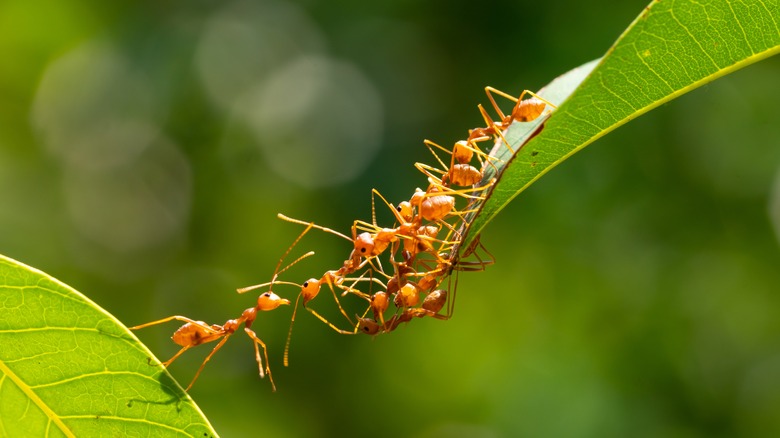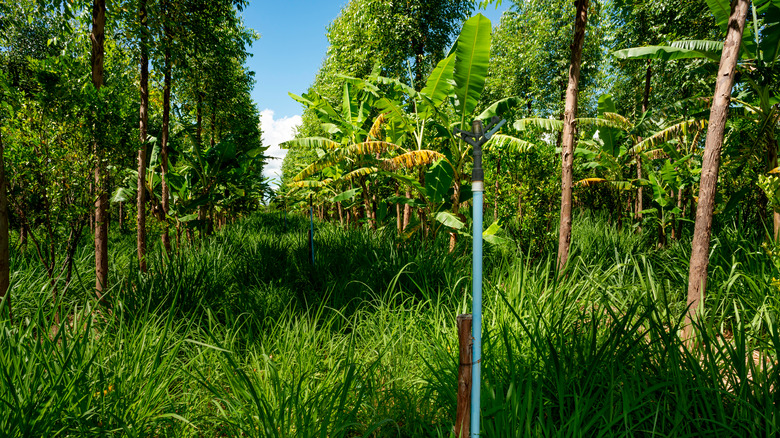Research Reveals The Important Role Ants Could Play In Sustainable Farming
From livestock to food crops, conventional agriculture has intensified in correlation with the growing number of people on this planet. To be able to sustain a global human population that has quadrupled in size in the last century, National Geographic says that the agricultural industry adopted techniques that increased crop yields — making modern agriculture heavily dependent on synthetic fertilizers. Although these fertilizers have helped double the food production rate, they've also been a cause for environmental concern.
As the leading source of pollution in many parts of the world, synthetic fertilizers have been found to infect water, air, soil, and even rainfall with excessive levels of nitrogen and phosphorous that can linger in the environment for generations (via World Wildlife Fund). As global climate change disrupts the natural processes on which modern agriculture relies, the industry continues to innovate farming techniques that fuel a future of increased food insecurity, as in the cases of damaged agriculture in Hawaii and struggling rice crops in India.
With the world's population expected to increase to nearly 10 billion by 2050, per the United Nations, sustainable agricultural methods are becoming increasingly vital for both food security and environmental wellbeing. In recent years, global concern has fueled research surrounding environmentally friendly innovations — and one study published in "The Royal Society B" suggests that ants might be the tool that will allow the agricultural industry to wean off synthetic fertilizers for good.
The ant effect
From insect feed to crop pollination, there is a world of sustainable opportunities for modern farmers that is found by harnessing the natural power of insects. However, a recent study specifically found that ants, which are the natural predators of many pests that damage crop fruits, seeds, and leaves, can actually be more effective for growing food than chemical fertilizers and pesticides are.
The study is the first of its kind: by comparing data from groups of plants with ants and those without, the paper offers a clear and systemic review of the positive role ants could play in modern agricultural systems. While there is still much more to understand about the ways insects interact with crops, the lead researcher, Dr. Diego Anjos, told The Guardian that the study "encourages farmers to use more sustainable practices such as biological control provided by ants and practices of shaded crops as a way to naturally promote ants in crop systems."
Along with the ability to naturally protect crops and increase yields, researchers found that ant species operate best in shaded farming systems with diversified crops. This stands in direct contrast to mono-cropping, a common practice that suggests that farmers are better off using the same land to grow the same crop, year after year. Although it may be convenient, the practice is also linked to soil degradation and deforestation (via Science Direct).

